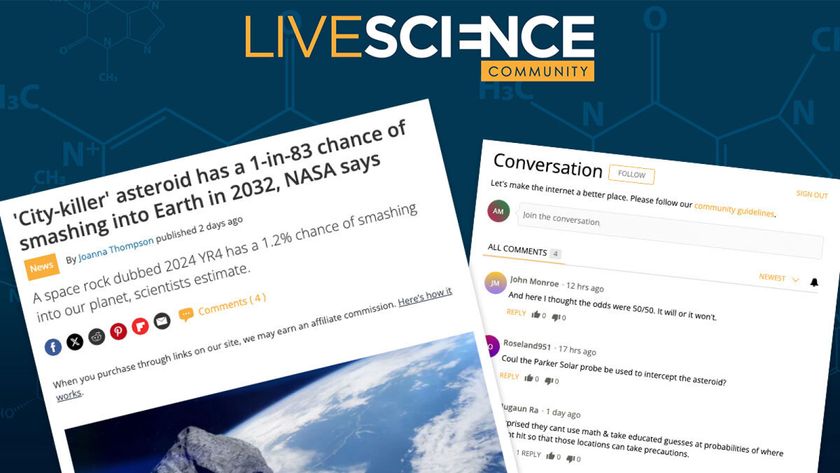
For singles, Valentine's Day can be a stressful referendum on whether they're lovable. New couples worry about making the right gesture, and children worry about who gets a card on the big day.
Given all the stress, how many people actually like Valentine's Day? And is there a way to make the holiday more inclusive and enjoyable for everyone?
"Perhaps if we widened what the holiday meant, it might be different," said Sandra Faulkner, a relationship researcher at Bowling Green State University in Ohio.
Stepping away from commercial or socially expected gestures and making the holiday a love fest for everyone special in life — from parents to best friends — might make the holiday less stressful for everyone, experts say. [The Cost of Valentine's Day (Infographic)]
Too many expectations
Despite the advertising, or perhaps because of it, most people probably don't care that much for Valentine's Day, said Jeffrey Hall, a communications researcher at Kansas State University.
"There's so much made of it; there's a lot of pressure to do something special," Hall said. "It's a very confusing holiday, because the expectations — socially, collectively, as a society — are just way off the charts."
Sign up for the Live Science daily newsletter now
Get the world’s most fascinating discoveries delivered straight to your inbox.
Many single people feel they have to snag a date for the big day. But even the coupled-up can freak out about the holiday.
"There's this real dance where one person, typically the woman, puts expectation on what a guy is supposed to do for Valentine's Day and reserves the right to judge the performance as being good or bad — but doesn't give him any clue as to what she actually wants," Hall said.
New couples often see the level of Valentine's Day effort as emblematic of their relationship's long-term prospects, which can be a mistake, he said. [How Do I Love Thee? Experts Count 8 Ways]
For instance, studies have found that more people tend to break up around Cupid's holiday, perhaps because it spurs them to consider whether they really want to be with the person they're dating, Faulkner said.
More established couples, meanwhile, may be too busy juggling kids, jobs and daily life to wrangle a four-star dinner reservation, Hall said.
Exclusive club
The old-fashioned view of romance projected by card companies and other commercial interests is also very narrow.
"It's so shaped around a male and a female pairing," Faulkner said.
For instance, a man looking for a card for his male partner may have trouble finding something other than a teddy-bear-themed card for a 5-year-old.
For feminists, the holiday can rub the wrong way, because it's all about waiting for a man to take charge — to make the romantic gesture, buy the expensive gift and go all out, Faulkner told Live Science.
Children often like the holiday: Faulkner's 4-year-old daughter was excited by the prospect of getting an extra cookie with the afternoon snack.
But even for them, the holiday sometimes smacks of exclusion.
"There's even been some stress this week about who's her friend, who's not her friend, who she's giving a Valentine to," Faulkner said, referring to her daughter.
Redefine love
Of course, the general idea of the holiday — to celebrate love — isn't a bad one.
"Who's against love? We could probably all use more love," Faulkner said.
Making the holiday about love between friends, family, same-sex couples and everyone a person cares about, rather than a celebration of coupling up, could be a way to celebrate the love without all the angst.
Developing personal rituals, such as taking a walk or making a home-cooked dinner, rather than competing over a four-star dinner reservation, could also take pressure off the day, Faulkner said.
Coming up with plans collectively, instead of dropping oblique hints, is also a good idea, Hall said.
Studies show that in long-term relationships, "one of the best signs a relationship is going to succeed is someone having an attitude of thankfulness and gratitude toward their partner, Hall said.
So being grateful — whether your Valentine gets you a giant teddy bear or a roll of Mentos from the corner store — is probably the best way to make sure that love lasts, Hall said.
Follow Tia Ghose on Twitter and Google+. Follow Live Science @livescience, Facebook & Google+. Original article on Live Science.

Tia is the managing editor and was previously a senior writer for Live Science. Her work has appeared in Scientific American, Wired.com and other outlets. She holds a master's degree in bioengineering from the University of Washington, a graduate certificate in science writing from UC Santa Cruz and a bachelor's degree in mechanical engineering from the University of Texas at Austin. Tia was part of a team at the Milwaukee Journal Sentinel that published the Empty Cradles series on preterm births, which won multiple awards, including the 2012 Casey Medal for Meritorious Journalism.


